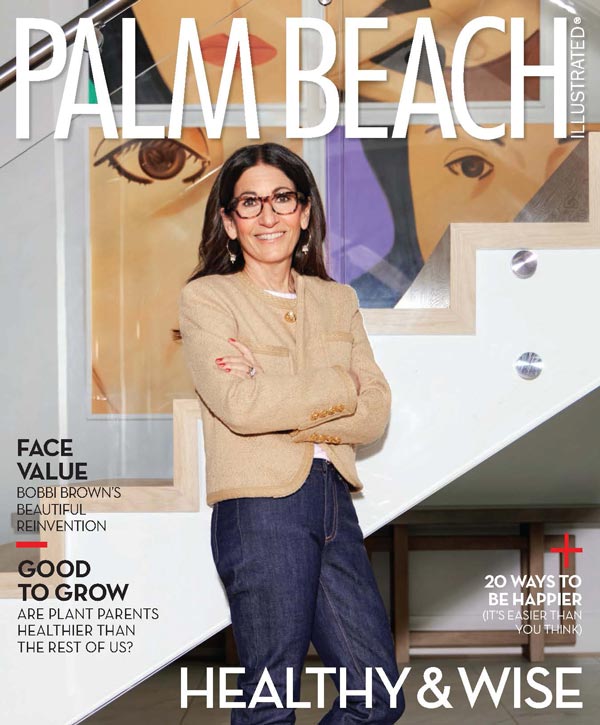Music has always been a constant in Lisa Vroman‘s life. From singing in her church choir in Upstate New York to playing the part of Christine Daaé in The Phantom of the Opera on Broadway, Vroman has forged a crossover career that celebrates her operatic soprano and her knack for the dramatic. For more than two decades, she has traveled to South Florida to perform with the Choral Society of the Palm Beaches, a group dear to her heart. She’ll join the Society on February 21 and 22 for “Signs of Our Heritage,” a concert celebrating music by Americans for Americans. The concerts are held in the Lifelong Learning Society auditorium at Florida Atlantic University’s Jupiter campus, and tickets cost $20. PBI.com spoke with Vroman about her love of music and theater, and about her textured performance history.

PBI.com: How long have you been performing with the Choral Society of the Palm Beaches?
Vroman: Since 1993. My stepfather conducted it, and my mother was an assistant. He passed away, and then Mark Aliapoulios took over. My mother was in it until she passed away three years ago. But I’ve been coming down each year to visit and perform, and it makes me feel closer to her to see her friends and to make music with them—and it makes them feel good too.
What can audiences expect from the concert?
We’re going to feature American music and composers. There’s a huge section of Aaron Copland; he wrote so many beautiful folk songs as well as an opera called The Tender Land, which has just amazing, amazing musc. So I’m going to do one of the pieces from that opera. And I will be doing some early American theater literature, and I’m going to feature a set from a particular musical that’s a real favorite from one of our brilliant American musical theater composers.
Were music and singing big parts of your life growing up?
My mother was a pianist, so I fell in love lying on the floor when I was really young listening to piano concertos by artists like Rachmaninoff. And of course, I loved classic movie musicals. I sat down in front of The Sound of Music—I probably have seen it 500 times—and The King and I and South Pacific, we all loved all of that. … My mother was the church choir director, and I sang in the choir. I also played the flute, and I think that developed my breathing and my musicianship.
Who were some of your musical influences?
My dad loved, loved, loved Ella Fitzgerald. No, I’m not a jazz singer, but I admire how beautiful and natural her approach was to her voice. Her technique was so natural. She had a huge range but it was a really natural production, a beautiful sound, and she also had a real affinity for language and for words.
When did you decide to pursue singing professionally?
Later. I was a little girl from Upstate New York so I was really green. I did a four-year music education degree at Potsdam State University, and I went with the intention of doing choral music education. I auditioned for the concerto program my senior year, and two of my professors took me aside after the audition and told me they thought I should go to grad school. So I then went and auditioned for four or five graduate schools and picked Carnegie Mellon—they picked me. I was behind the eight ball as far as performance track, my languages were weak. A couple places would take me but they didn’t really think much of what I had to offer. Carnegie Mellon was a place where I found a teacher who knew exactly what I was, what kind of crossover singer I was.
Can you describe the term crossover singer? That trait has really shaped your career.
It’s flexible style wise, but my teacher Beatrice Krebs kind of taught me what that was. She was a mezzo opera singer; she played the mother in the opera The Ballad of Baby Doe; Richard Rodgers picked her to be the first national tour Mother Abbess in The Sound of Music. In the first six months [of studying with her] she said ‘I know what your life is going to be like. It’ll be difficult. You’re not one exact thing or the other, but you can have success in both fields. Everybody is going to push you to do one or the other, and you don’t have to.’
How did you land your first Broadway gig?
After school I stayed in Pittsburgh and sang with the Pittsburgh Opera Chorus, and then I went to New York and got into that rejection pool. You have to start auditioning for people so they get to know you in New York. You’re lucky if you get cast the first time, but if not then they start remembering you coming back and forth—and you do a lot of regional work.
I did audition for Les Misérables after getting to know the casting person, and because I could sing Cosette and also get through Fantine’s part, they hired me to cover both for the first track. I ended up taking over Cosette, and then the same casting person put me in Aspects of Love, which was my first Broadway show.
How did you acquire your signature role of Christine Daaé in The Phantom of the Opera?
After Aspects of Love, I went on the road to play Fantine for a year and a half. After that, I came home and did a few regional things and the same casting director wanted to bring me in for Phantom. Yet, they weren’t going to see me for Christine because they decided I was perfect for Madame Giry. So, I went in and sang, but I asked the musical director ‘Can I just sing what my voice is?’ And, unbeknownst to him, his assistant, whom I knew, had sent me all of Christine’s music. So, that was it. I sang and a couple weeks later they asked me to come in and sing for Hal Prince and then I started my 10 years of playing Christine. So I guess I was right for the part after all.
What did you love about that role in particular?
I loved the storytelling. I loved the period, I loved the costumes, I loved being a part of a group and a family that I went to work with everyday. Each time you do a new show or a new concert you meet a whole group of new people, and you find those who believe the same things you do and work as hard as you do and have the same kind of work ethic.
Which one of your characters have you most enjoyed portraying?
I think you evolve to be who you are when you get to do a role that really suits you. And there are a few of mine that stick out. I loved doing Christine, playing the ingénue years. I got to do The Music Man finally, with Shirley Jones in a production they put on just for her. She was playing my mother, Mrs. Paroo. It was a big weep fest in the first rehearsal. I started singing the first scene, and she started getting a little teary. But I have to say number one would be playing the role of Anna in The King and I with an opera company in Virginia a couple years ago. I performed with a great friend of mine, Kevin Gray, who was one of only a handful of men to play the King of Siam on Broadway. He died last year so it was one of the last shows he did. We had done many shows together in the late ’80s in New York, so it was like being with my brother.
What skills do you think are needed to be both an accomplished singer and an effective stage actress?
Those two roles should always be married—regardless of genre. In opera, the musical requirements are on a more focused level where you cannot sacrifice one note of anything; you cannot be overly emotional, you cannot be overly physical and sacrifice what you need for the line. In both worlds, there’s a certain level of each that’s so necessary. In theater, of course, it’s about the play but sometimes to the dismissal of the music, which annoys me.
What’s your biggest piece of advice to those who would like to pursue careers similar to yours?
I just think they have to learn their technique to the best of their ability. Learn what their natural voice can do. If your technique is not at a level of having studied a basic bel canto style, you will probably suffer if you try to put the restraints of pop singing on it eight times a week. I feel like good technique has to begin it.








Facebook Comments